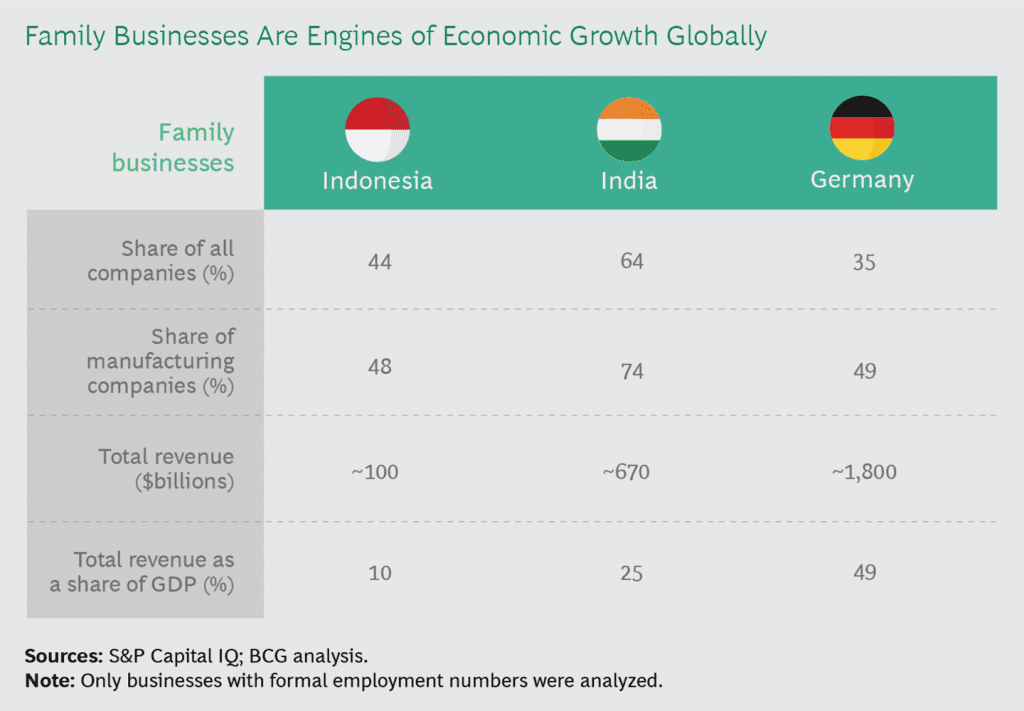Family-owned businesses are employers of millions of individuals globally, generators of sizable streams of tax revenue, and financial and social anchors for many communities. The families that own these businesses typically exert considerable influence over their management and operations and, as a result, their performance and survival. The decisions that these families make impact their wealth as well as the futures of the people they employ and often the ecosystems in which they operate.
Without guidelines that govern decision making, families may struggle to agree on leadership choices, succession issues, and other contentious topics that can have a substantial impact on their businesses. It is therefore important that families create an operating model that is tailored to their businesses—a model that helps them manage effectively, treat family members fairly, and preempt conflict.
The Economic Importance of Family Businesses
The role that family businesses play in advancing economic growth is hard to overstate. (See “An Economic Bedrock Through the Ages.”) In many major economies, family-owned businesses account for a significant share of all companies. Our analysis of Indonesia, India, and Germany found that family businesses represent 48% to 74% of all manufacturing companies. (See the exhibit.) They also create millions of jobs through direct employment and millions more indirectly. And they inject significant revenue flows into these economies. In Indonesia, family-run businesses generate more than $100 billion (roughly 10% of GDP). In India, that figure climbs to nearly $670 billion (about 25% of GDP). And in Germany, family businesses contribute a massive $1.8 trillion in revenue (approximately 49% of the country’s GDP).



